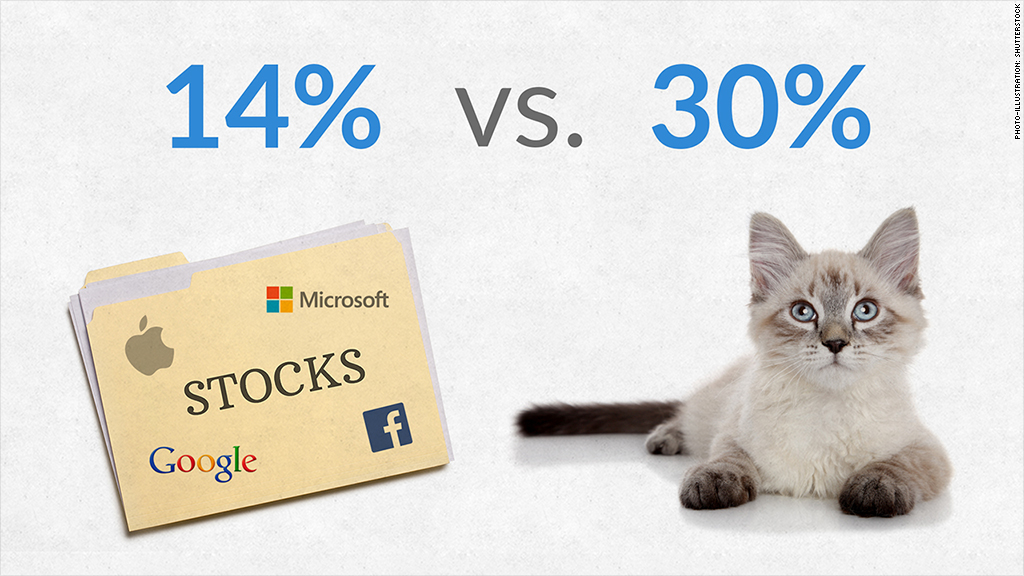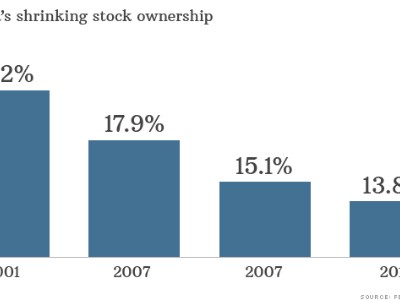
A lot more American families own cats than individual stocks.
Despite the sizzling stock market, Americans remain cool to the idea of having direct exposure to the companies benefiting from the economic recovery.
According to new stats from the Federal Reserve, just 13.8% of U.S. families held any individual stocks like Apple (AAPL) or Microsoft (MSFT) as of 2013. That's down from nearly 18% in 2007 before the market meltdown.
"After experiencing severe losses in 2007 and 2008, investors with smaller portfolios have become more cautious," said Lena Haas, senior vice president of retirement, investing and savings at E*Trade Financial (ETFC).
While less than 14% of families directly held stocks in 2013, 30% of households own at least one cat, according to the American Veterinary Medical Association.

Why hasn't Main Street recovered like Wall Street?
It's not just that Americans are less willing to hold an individual stock. Even indirect stock ownership, which includes investing via mutual and pension funds and 401(k) plans, is in decline.
The Fed said direct and indirect stock ownership slipped to 48.8% in 2013, down from 53.2% in 2007.
The decline in stock ownership helps explain why many Americans haven't felt the bull market in stocks, which is now more than 2,000 days old.
Related: Which is a better buy? Apple or Exxxon?
The S&P 500, the most closely watched U.S. equity index, has soared 200% since bottoming out in March 2009.
That helps explain why the Fed said the mean value of stock holdings increased from $228,300 in 2010 to $269,900 in 2013. Those who do have money in the market are getting richer.
Some struggling American families may have been forced to cut their exposure to stocks to help pay the bills. The Fed said stock ownership among lower income households declined between 2010 and 2013.
On the other hand, higher-earning families are pouring extra cash into stocks. The report showed the top income group boosted its stock ownership rate to 92% from 88% in 2010.
Related: Super rich are getting super richer
Haas said E*Trade clients with less than $1 million in their portfolios are increasingly shying away from ownership of individual stocks in favor of mutual funds and exchange-traded funds, or ETFs.
"People are thinking about reaching longer-term financial goals and approaching it in a disciplined way rather than trying to become the best stock picker," said Haas.
That more cautious mentality could be a silver lining of the financial crisis, which caused many investors to lose more than half their portfolios.
"When investors try to pick individual stocks, they often get into a very emotional cycle where they buy when the stock is rising and they sell out of fear when the stock is going down," said Haas.


